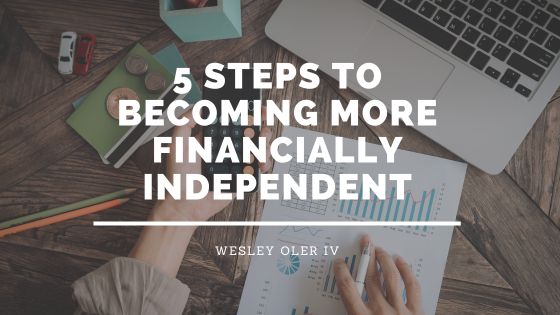Achieving financial independence is a goal that many people aspire to, but it can feel overwhelming and unattainable. However, with simple steps and planning, anyone can achieve financial independence.
Create a Budget
The first step to becoming more financially independent is to create a budget. A budget allocated income for housing, food, transportation, entertainment, and savings expenses. Creating a budget will help identify areas of overspending and find ways to cut back. It can also help you prioritize your spending and ensure you put money toward your long-term goals.
To create a budget, start by tracking your expenses for a month or two. This will identify where money is going and where to cut back. Then, create a spreadsheet or use a budgeting app to plan how to allocate your income to expenses. Be sure to include a category for savings to start building up your emergency fund and investing for the future.
Build an Emergency Fund
An emergency fund is a savings account covering unexpected expenses such as car repair or medical bills. An emergency fund prevents falling into debt or dipping into your long-term savings when unexpected expenses arise.
To build an emergency fund, set a savings goal to cover at least three to six months of living expenses. Then, set up automatic monthly transfers from your checking account to your savings account.
Pay Off Debt
Paying off debt is another crucial step toward financial independence. High-interest debt can significantly drain your finances and make it challenging to achieve your long-term goals. You can free up money for savings and investments by paying off debt.
To pay off debt, start by planning how you will tackle it. Focus on the most minor first and then move on to the next smallest. This can build momentum and keep you motivated. Also, consider consolidating your debt into a lower-interest loan, such as a personal loan or balance transfer credit card, to save on interest charges.
Invest for the Future
Investing for the future is an essential step toward achieving financial independence. By investing, you can grow your money over time and build wealth. Many types of investments exist, including stocks, bonds, and mutual funds.
Consider a retirement account such as an IRA or 401(k) to start investing. These accounts offer tax benefits and can help you to save for retirement. Also, consider investing in low-cost indexes or exchange-traded funds (ETFs) to build a diversified portfolio. Investing involves risk, so research and consult a financial advisor before making investment decisions.
Increase Your Income
Increasing your income is another crucial step towards financial independence. By earning more money, you can put more towards savings and investments and achieve your goals faster. There are ways to increase income, such as negotiating a raise, starting a side business, or investing in your education and skills.
To increase your income, start by exploring different opportunities in your current job. Consider asking for a raise or taking on additional responsibilities. Also, consider creating a side business or freelancing in your spare time. This can help you to build a new source of income and develop new skills. Additionally, consider investing in your education and skills through online courses, workshops, or certifications. This can help you qualify for higher-paying jobs or advance your career.
